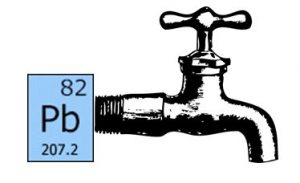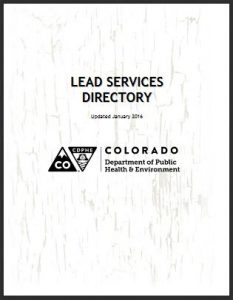 If you live in an older home, your water pipes may be made of lead, which is associated with significant health risks. In response to the Flint, Michigan controversy, Denver Water has been testing older homes and replacing lead pipes with copper (see news story). Other municipalities and water districts also have lead abatement programs and testing; check with your town or city to find out more. The Colorado Department of Public Health and Environment (CDPHE), which has numerous resources on lead abatement, publishes a Lead Services Directory which you can use to find information on your specific county/municipality or to find a professional who can test for or replace lead pipes.
If you live in an older home, your water pipes may be made of lead, which is associated with significant health risks. In response to the Flint, Michigan controversy, Denver Water has been testing older homes and replacing lead pipes with copper (see news story). Other municipalities and water districts also have lead abatement programs and testing; check with your town or city to find out more. The Colorado Department of Public Health and Environment (CDPHE), which has numerous resources on lead abatement, publishes a Lead Services Directory which you can use to find information on your specific county/municipality or to find a professional who can test for or replace lead pipes.
 CDPHE also publishes a number of other resources that property owners may find helpful — not only regarding lead in water, but also lead paint, contaminated soil, and other sources of lead. See their Lead webpage for resources on the topics lead and your health; lead-based paint; lead in drinking water; working with or around lead; and lead waste management. You can find additional resources by searching the keyword “lead” in our library’s online catalog.
CDPHE also publishes a number of other resources that property owners may find helpful — not only regarding lead in water, but also lead paint, contaminated soil, and other sources of lead. See their Lead webpage for resources on the topics lead and your health; lead-based paint; lead in drinking water; working with or around lead; and lead waste management. You can find additional resources by searching the keyword “lead” in our library’s online catalog.
- How to Spot the Differences Between Eagles and Hawks - August 16, 2021
- How Transportation Projects Help Tell the Story of Colorado’s Past - August 9, 2021
- Time Machine Tuesday: The Night the Castlewood Canyon Dam Gave Way - August 3, 2021